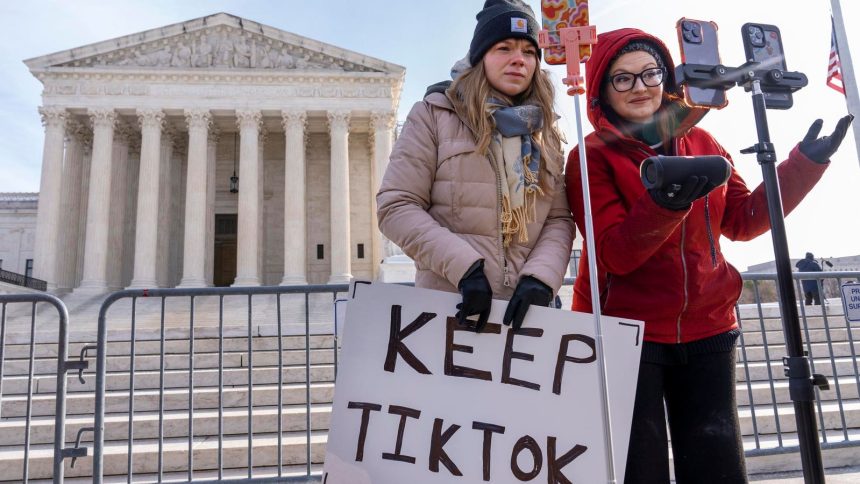The Impending TikTok Ban: A Clash of National Security and Free Expression
The fate of TikTok in the United States hangs precariously as a federal ban, upheld by the Supreme Court, looms large. The law, set to take effect Sunday, mandates the separation of TikTok from its Chinese parent company, ByteDance, due to national security concerns related to data collection and potential Chinese government influence. This decision has ignited a fierce debate, pitting national security interests against concerns over free expression and economic impact. While the legal battle appears concluded for now, the incoming Trump administration inherits a complex situation with far-reaching consequences for social media, international relations, and the digital landscape.
The Supreme Court’s decision, while acknowledging the burden on TikTok users’ expressive activity, prioritized the government’s national security concerns. The justices argued that the law targets China’s control over the platform, not the content of speech itself. They emphasized the potential for China to leverage TikTok’s vast user data, a concern amplified by the platform’s immense popularity among Americans. This justification, while seemingly persuasive to the court, leaves open questions about the balance between national security and individual liberties in the digital age.
The transition of power to the Trump administration adds another layer of complexity. While the outgoing Biden administration has deferred enforcement to the incoming administration, Trump’s stance remains ambiguous. His past criticisms of the app, coupled with recent statements suggesting a desire to review the situation, create uncertainty about the ban’s ultimate enforcement. The possibility of an executive order delaying or modifying the ban, while legally permissible under certain conditions, could face legal challenges and further complicate the already convoluted situation.
The practical implications of the ban are equally unclear. While TikTok has indicated plans to go offline in the U.S. if the ban takes effect, the specifics remain murky. App stores will likely remove TikTok, preventing downloads and updates. The impact on existing users, however, is less certain. While some reports suggest a complete shutdown, other possibilities, such as relocating servers outside the U.S., could allow some level of continued access. This uncertainty leaves millions of users and content creators in limbo, unsure of the future of their online communities and livelihoods.
The potential sale of TikTok’s U.S. assets presents another avenue for resolution. While ByteDance has previously resisted divestiture, the impending ban may force a reconsideration. Several potential buyers, including a consortium led by billionaire Frank McCourt and possibly even Elon Musk, have emerged. However, any sale requires approval from the Chinese government, adding a geopolitical dimension to the already complex situation. The price tag, estimated between $40 and $50 billion, further complicates the process, especially given the significant investment required and the potential regulatory hurdles.
Public opinion on the TikTok ban remains divided. While a significant portion of Americans support the ban due to national security concerns, another substantial group opposes it, highlighting the tension between protecting national interests and preserving individual freedoms. The declining support for a ban over time suggests a growing awareness of the complexities involved and the potential impact on free expression. The future of TikTok in the U.S. remains uncertain, caught in a web of legal, political, and economic considerations. The ultimate outcome will have far-reaching implications for the social media landscape, the balance between national security and individual liberties, and the evolving relationship between the U.S. and China.



